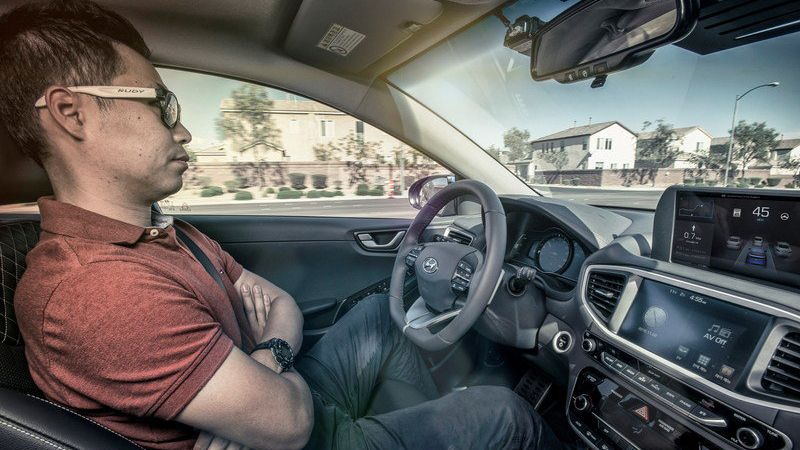So, just to be clear, the European Union hasn’t decided to ban the steering wheel and force you into the days of simple relaxation and safe Facebook indulgence while you commute from one place to the next. But, a recent move by the European Commission could make all of the latest autonomous technology a requirement for all new cars sometime in the near future. The move would come as part of the E.U.’s next update to its vehicle safety rules and is – in theory – moving one step closer to the full removal of the steering wheel.
In a recent report that you can find here, there are 19 different measures that the European Commission wants to make mandatory on all cars. You’ll find things like automatic emergency braking, lane keep assistance, driver drowsiness and distraction monitoring, and Intelligent speed adaption, among others. Most of these systems are becoming increasingly standard on a lot of higher-range models from most manufacturers, but intelligent speed adaption will actually prevent you from speeding – something that is alarming to car enthusiasts and some who argue that it’s an attack on free.
In the end, the European Commission claims that this type of regulation is for safety reasons, saying that the introduction of various autonomous safety systems has led to a significant decrease in traffic fatalities over the last five or six years. Official numbers given in the document say that fatalities dropped to 26,150 in 2015 from 35,360 in 2009, so their argument could be valid. Right now, most manufacturers only offer these semi-autonomous features in higher-range models while they trickle down to more affordable models very slowly, making it harder for someone on a budget to obtain the life-saving technologies. This could all be a good thing, but how far will it go?
The Beginning of the End?
Whether you like technology or not, it’s hard to argue with the fact that some of the semi-autonomous features can save lives. According to the report from the European Commission, experts claim that 95 percent of road accidents involve some level of human error while it’s estimated that 75 percent are caused by human error alone. With an argument like that, letting technology take over seems like a good idea, but what if it doesn’t stop there? Cars with the ability to drive themselves from point A to point B are still a few years away, but they’re approaching quickly, with vehicles like the Tesla Model S and Model X already proving that fully autonomy isn’t that far away. When they do get here, it could be just a matter of time before the safety argument rises again and regulatory boards move to make autonomous driving mandatory on all models. Once that happens, my friends, we’ll be just a step away from a full ban on driving yourself. Sure, letting a car drive itself could be nice if you’re tired or chugging away on a long road trip, but I don’t particularly fancy the idea of letting technology have full control all of the time. But, what do you think? Is making it mandatory for automakers to include semi-autonomous tech in all models a good move? How do you feel about the potential of eventually losing the ability to drive yourself when you wish? Let us know in the comments section below.

